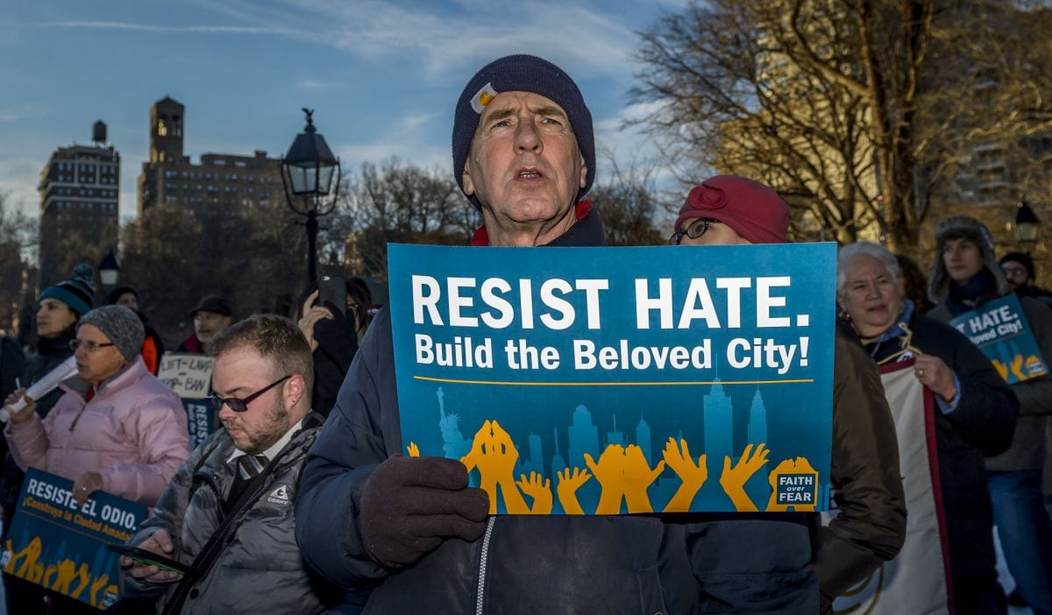In a clear warning, the Justice Department says it will cut off some grant money to eight sanctuary cities unless they can prove they are in compliance with immigration enforcement laws.
The amount of money is small — around $29 million out of a DoJ grant that totals $256 million. But it puts sanctuary cities on notice that further cuts are possible if they continue to defy the law.
Many of these localities say they do not have the funding or space to hold immigrants until federal agents can take custody of them.
Those threatened were: the state of California; New York City; Chicago; Philadelphia; Clark County, Nevada; New Orleans; Miami-Dade County, Florida; and Milwaukee County, Wisconsin. Cook County, Illinois, also received a warning, even though it did not get money from the Justice Department last year.
The jurisdictions have until June 30 to provide evidence to the federal government that they are not violating any laws.
At stake is roughly $29 million in law enforcement aid under the Edward Byrne Memorial Justice Assistance Grant Program, which helps local governments pay for everything from forensics labs to drug courts.
The grants in question are among the largest handed out under the program, collectively amounting to 11 percent of the $256 million distributed in the last fiscal year.
In a statement, the Justice Department singled out Chicago and New York as two cities that are “crumbling under the weight of illegal immigration and violent crime,” even though New York City is experiencing its lowest crime levels in decades and experts say Chicago’s recent spike in violent crime has little to do with illegal immigration.
Several state and local officials responded with defiance to the threat.
“New York is the safest big city in the country, with crime at record lows in large part because we have policies in place to encourage cooperation between NYPD and immigrant communities,” said Seth Stein, a spokesman for New York City Mayor Bill de Blasio.
In California, the state Senate approved a bill earlier this month to curb cooperation between police agencies and federal agents seeking to deport illegal immigrants. The measure is now in the state Assembly.
“It has become abundantly clear that Attorney General (Jeff) Sessions and the Trump administration are basing their law enforcement policies on principles of white supremacy – not American values,” California Senate President Pro Tempore Kevin de León, a Democrat, said in a statement on Friday.
A spokeswoman for the California Board of State and Community Corrections said some of the federal funding in question went to local communities after emergencies, including San Bernardino after a mass shooting there in 2015.
Officials in Philadelphia, Milwaukee County and Cook County said they believed they were complying with immigration laws.
The Justice Department is limited in the funds they can deny sanctuary cities. They just don’t have the control over large dollar amounts when it comes to funding local law enforcement.
But Congress is a different story. They have the power of the purse and could really put the hurt on cities and communities that refuse to cooperate with the government.
The problem is that a cut-off in funds for local law enforcement will hurt the wrong people. Ordinary citizens will feel the impact of a reduction in resources for law enforcement, making their communities less safe.
So the Justice Department is using a scalpel to cut funds rather than a hatchet, hoping it will convince ordinary people to put some pressure on their elected representatives to cooperate with the feds in curtailing illegal immigrant crime. After all, we’re talking about putting a hold on people already in custody for other crimes than crossing the border illegally. Some of those crimes are serious — rape, robbery, drunk driving, to name a few. Why the locals think it’s in the interest of public safety to release these criminals before ICE can deport them is a mystery.
The matter is certain to be fought out in the courts. It will be interesting to see what argument sanctuary cities make to try and prevent the Justice Department from deciding which cities get taxpayer funds and which don’t.









Join the conversation as a VIP Member